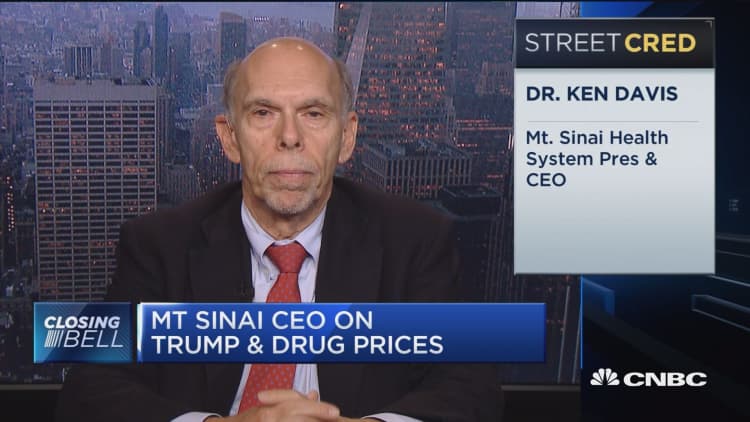
The Trump administration should address the high cost of prescription drugs in trade negotiations, Mt. Sinai CEO Kenneth Davis told CNBC on Thursday.
"Americans wind up paying much more for our drugs than anywhere else in the world. The rest of the world controls their prices; the U.S., it's a free market," he said on "Closing Bell."
"Essentially the U.S. is underwriting the research and development costs that happen for the rest of the world. This is a trade issue. This is a fair trade issue, and we have to bring it up in trade negotiations," he added.
His argument echoes that of President Donald Trump. Last week, Trump accused foreign allies of paying less than the United States for prescription drugs while benefiting from American investment in research and drug development. He said he has directed U.S. Trade Representative Robert Lighthizer to make fixing this a top priority with every trading partner.
The idea behind the Trump plan is drug companies should raise prices overseas where governments subsidize costs and lower prices in the U.S.
Davis said there is one big concern, however.
"If we can convince the rest of the world to raise their prices, will the drug companies pass that on so that there are savings to the American consumer?" he said.
The solution may be legislation that would make sure that drug companies used the advantage they gained through the trade negotiations to help patients, he added.
"The prices now are too outrageous," Davis said. "We have to make this more equitable across the world, and we have to find ways to do that."
— CNBC's Berkeley Lovelace contributed to this report.


